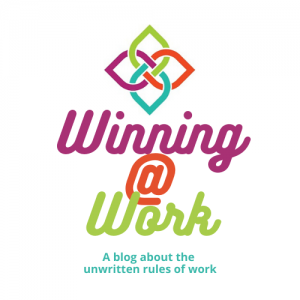
A toxic workplace is defined as an environment where the work demands, culture and/or co-workers cause serious disruptions in the rest of your life. According to survey on workplace satisfaction more than 90% of employees surveyed say they’ve experienced a “toxic” work environment at some point in their career. That's truly astounding!
If you have a job where you dread going to work on a regular basis and experience work-related disturbances in your life – health issues such as insomnia, elevated blood pressure, weight gain, self-medicating behavior or emotional issues such as irritability, depression, or anxiety – you may be dealing with a toxic workplace.
Often people who experience toxic workplaces feel trapped. After all, most people work to earn money for material needs and enjoyment, and often derive self-esteem and a sense of purpose from their jobs. When we are in a toxic workplace, it can feel like our very existence is being threatened and can cause us to retreat to survival mode. We may stop doing the things that we enjoy, which disrupts our ability to relax and recharge. Stress increases and we become fixated on how to “solve the problem” of work. It may be hard to see the big picture of what’s really going on as we redouble our efforts to please a demanding boss or meet ever-increasing goals.
Whether or not your bad work situation rises to the level of “toxic” doesn’t really matter. If you’re finding that work has gone from enjoyable (or at least tolerable) to draining and dreadful, there are three actions you can take:
- You do nothing and continue to endure the situation as it is,
- You leave in search of greener pastures,
- You can stay and try to improve the current situation (including making changes in your own behavior).
To help you decide which path you should take, here are some questions to consider:
- How long has this been going on? Is it related to a specific project or deadline? Can you see the light at the end of the tunnel? If it’s a relatively short-term situation, you may want to wait it out. The stressors may pass and the environment may return a state that you can tolerate or even go back to enjoying. If this is the “new normal,” you may be motivated to make a change.
- What prompted the change in the environment? Was it sudden or gradual? Did the situation change due to new leadership, new policies or a change in market conditions? If you can pinpoint when and where the situation started, you may be able to understand whether it’s something you can potentially change or adapt to. There's a big difference between lobbying for a change to a poorly conceived policy and arresting the effects of a tanking economy. Some things you have the power to change and some you don't. Understanding the root and magnitude of the issues at hand is a good start.
- How much influence do you have over the situation? Are those in leadership aware of the impact that the environment is having on you? How able are you to have a frank conversation about it with your boss or another person in a position of influence? Sometimes the issue is not with our boss. It could be coming from higher in the organization and your boss may have little influence on the expectations. Or it could be that your perception of what is expected is not aligned with your boss’s. Getting clarity and bringing ideas to the table on how to do things better is often welcomed. After all, those in leadership may not fully understand the impact their decisions have on your day-to-day. Speaking up could result in positive changes. Give it a shot before deciding on more radical actions.
- Are others in your organization having similar experiences? How are they coping? Sharing your experiences with co-workers may help you to not feel so alone. You could learn tips on how to better “manage up” or there could be an opportunity to build a coalition to influence leaders to make changes. Building alliances with fellow employees can help to change the perception from you being a “problem employee” to the recognition that there may be a true structural or management problem that is at the root of the issue.
- Are there other opportunities at your organization that will allow you to leave the toxic work situation? Is it your boss or department that is causing the situation, or is it a more systematic malady that exists throughout the organization? If the toxicity is confined to your specific department, you may decide to explore other opportunities at your organization in order to leverage your current organizational knowledge and network. If the toxicity is rampant throughout the organization, you may choose to get out entirely to save your health and sanity.
- Is the environment unique to your organization, or is it a reality of the industry? Are there people in your network at other organizations that you can consult to find out? Your skills and experience may be in demand from another employer that has a better culture, or that is in a more favorable position in the marketplace. Getting a view of what it’s like at competitors can give you information you need to decide if you should stay, go or try something completely new.
- What does it cost you to remain in your current situation? Is your confidence waning? How is the situation affecting your health and relationships? Sometimes workers will stay in a situation for much longer than they should. It’s hard to consider leaving without another job, but sometimes it can be the best option before their relationships, health or confidence are eroded to the point of not having the energy to look for another job. Sometimes “hanging in there” can also eventually lead to being fired by an unreasonable manager or pegged as the scapegoat for mistakes. Both of these scenarios can be hard to bounce back from. Though leaving a job without another job is not ideal, sometimes taking control of one’s destiny is preferable to continued suffering and abuse.
- How egregious is the situation? Has it risen to the level of illegality? Is there blatant abuse, harassment or discrimination taking place? Are you able to document it? If the abuse is significant, you may consider consulting an employment attorney to explore your options. Some companies may be open to a negotiated exit which could include a severance package. Some employment attorneys provide free consultations, and even if you need to pay for an hour of their time, it could be well worth the investment. Experienced attorneys often know a lot about employers and their likelihood to negotiate or if they’ve been accused of other employment law violations. At the very least, they can advise you of your rights.
- How much of this situation is based in reality and how much is your perception? Sometimes people will label a situation as “toxic” when it’s actually just uncomfortable because it requires them to adapt and develop new skills. Take a close look at yourself and ask whether your experience could be different if you responded differently. If other people are not having issues with the situation, it could be that you need to learn some new skills in order to cope. It’s always helpful to get perspective on the situation. A mentor, coach or experienced friend can sometimes help you see the bigger picture and help you decide what options you have.
If you are suffering through a toxic (or merely uncomfortable) work situation, you have my profound sympathies. It can be very difficult and detrimental to your mental and physical health. Don’t suffer alone any longer. You deserve to enjoy your job. Use these questions to consider your options and take action to make a positive workplace a reality for you.
If you could use some help in figuring out what to do next, please reach out to me for a free consultation. I’ve experienced toxic workplace situations first-hand, have learned some valuable lessons, and have coached many people in toxic work environments to a better place.

